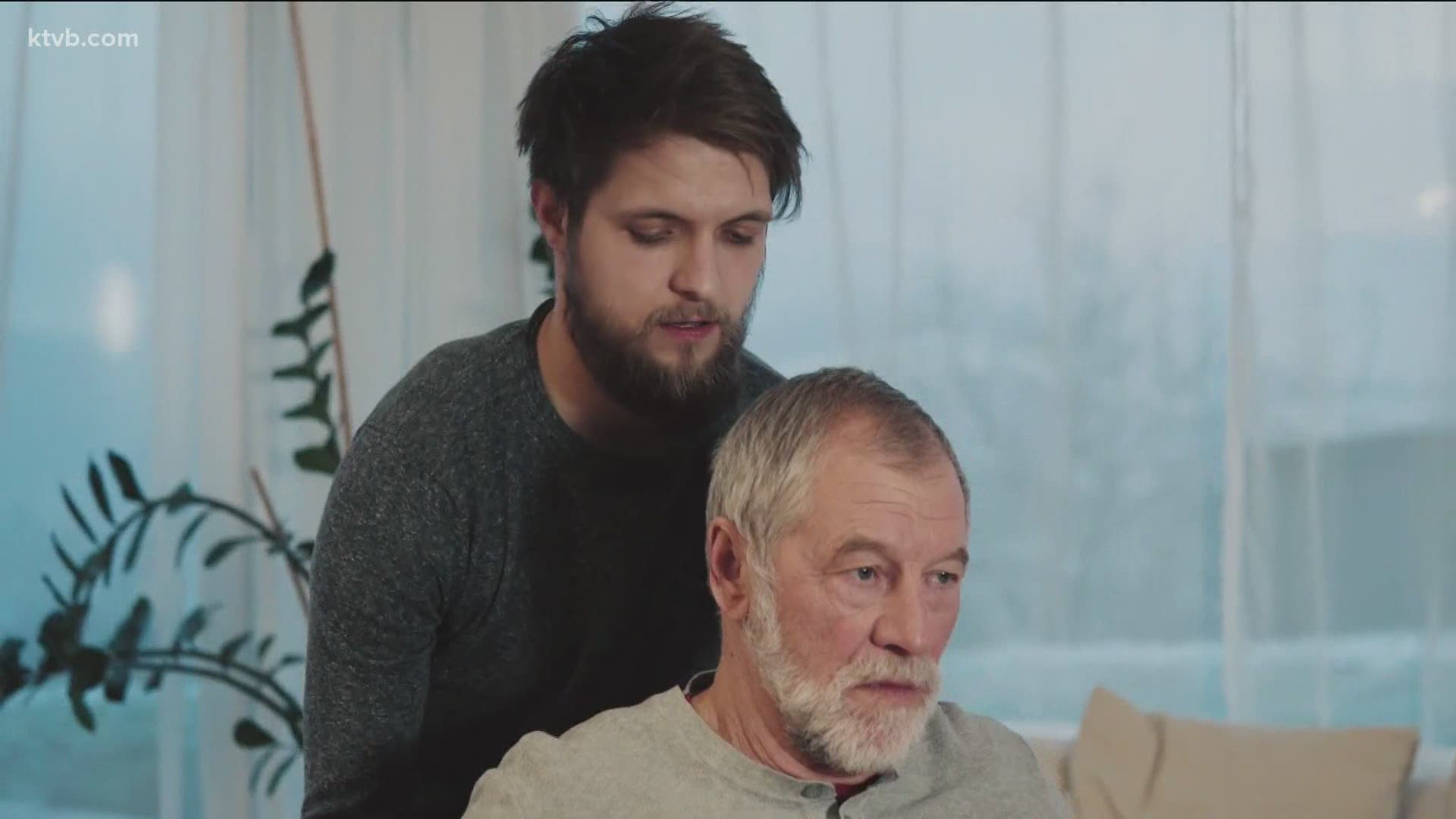BOISE, Idaho — November is National Family Caregivers Month, where we bring awareness to the people who love and care for their family members, who can’t take care of themselves.
According to Doctor Dennis Woody with Optum Idaho, family caregiving is more common than data might suggest.
“AARP puts out that there are about 53 million caregivers in the U.S. and that number is up by 10 million as recent as 2015,” Woody said. “That data includes elder Americans, but missing from that data are those children who actually require 24/7 management from a disability.”
Woody said there are many ways a caregiver can receive care whether it’s from a friend, a family member receiving care, or themselves.
“It’s really important as a provider of care to make sure you get the routines down as well as you can, and to provide some opportunities for yourself to socialize other than the person you care for. In other words, reach out to your friends, establish and maintain those relationships that give you social contact,” the psychiatrist said. “You also want to make sure that you’re getting some physical exercise, get outside, breathe some fresh air and maintain some semblance of a routine on a day-to-day basis.
Leaning on family, even if their ability is limited, can provide some relief as well, he said.
“For an older parent who doesn’t have good mobility, there can be contributions they can make to daily activities that the family experiences, perhaps folding clothes or setting the dining room table. Giving people those sorts of integrated tasks improves health and lengthens their lifespan,” he added.
Woody said that caregivers should effort maintaining social relationships with their friends, as well as seeking help from a mental health professional if they need.
“I think being able to talk to somebody about some of the pressures you might be experiencing as a caretaker is really important – to be able to sit down and have a cup of coffee with a person and be able to share the types of pressures you’re experiencing,” he said. “If you notice that you’re having sustained experiences of hopelessness and sadness, it’s very possible that mood disorders can enter into this formula quite easily over a period of time. So making sure that you have good medical care for yourself is really important.”
Woody added that it’s okay for caregivers to ask for help if they need it.
Resources include the National Respite Network & Resource Center (ARCH), Idaho Commission on Aging, and the Idaho Caregiver Alliance.
“I think the notion that we as family members or as fellow citizens have the capacity-- simply by virtue of the fact that someone might be struggling—we can reach out,” Woody said. “That ability to reach out doesn’t require a professional or medical degree, it’s simply the fact that you are aware and that you care. That sort of reaching out can be a very important platform for stability in that individual.”
Watch more 'Hello Idaho':
Watch our latest conversations about mental health in our YouTube playlist:

